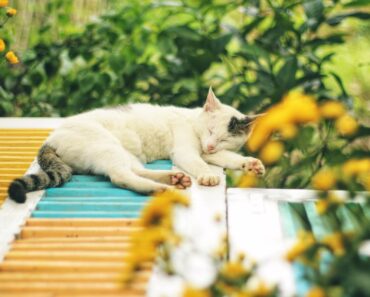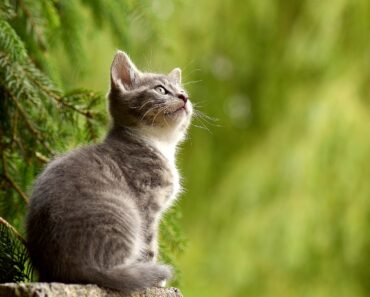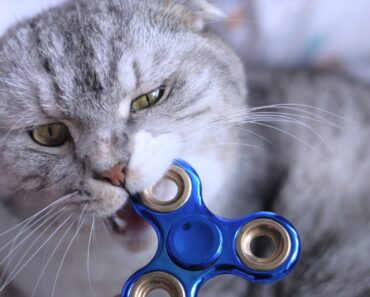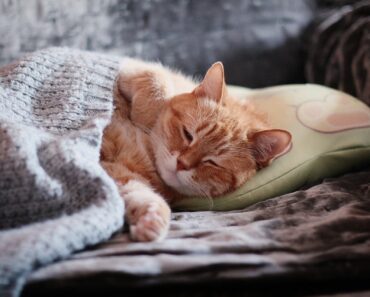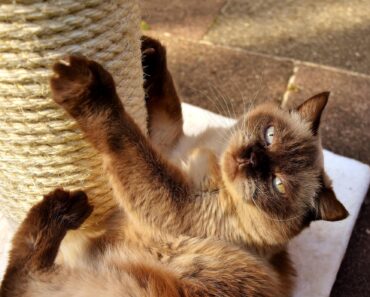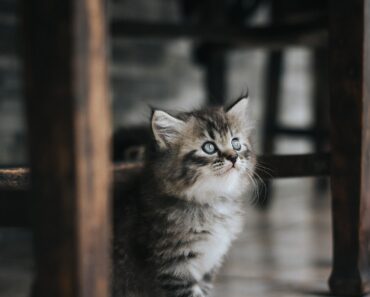
Occasional licking of human hands is not only common in dogs, but also in cats. Such close contact is not pleasant for everyone, as the rough tongue often leaves irritation on the skin.
If you want to wean your pet off this bad habit, look for the cause. In addition to common tenderness, unusual behavior may be due to a hidden condition that threatens the pet’s health or even life.
Non-hazardous causes of unusual behavior
Non-dangerous causes are due to various instincts and patterns of feline behavior. They are not dangerous and do not need to be corrected. In such situations, the changes are voluntary, so you should proceed according to your own experience.
Influences of instinct
Kittens become accustomed to asking for food at an early age by licking their mother’s face. Once introduced into the human family, it is replaced by the hands of its owner.
The act of licking is often repeated after dinner. In this case, the animal simply thanks you for the delicious meal and expresses its appreciation.
A way to communicate and attract attention
In addition to their hearing and voice, pets also use their senses of smell and touch to communicate. With their sensitive tongues, they can gain information about new acquaintances and learn about their owners’ moods.
Compulsive hand licking can also indicate a lack of attention. If your pet is often left alone, he or she is trying to get you to play together – or watch a show while cuddling.
The cleanliness of cats, the effects of odors
Cats are the cleanest of all animals. They are extremely sensitive to odors and will not fail to lick the hands of their owners to eliminate unpleasant odors.
The situation can also be reversed. If the smell is pleasant, the cat will lick the person for pleasure. Cats are often attracted to the taste of sweat and certain creams.
Empathy or treating a human being
Empathetic cats are very aware of their owners’ concerns. By licking a human, they try to soothe and reassure them. They do the same when they detect injuries or wounds.
Showing dominance or leadership
Unlike dogs, cats act as equal partners or take charge of the house themselves. In the latter case, the licking is due to indulgence of the feeder and showcasing one’s own status.
Dangerous causes
Dangerous causes are due to internal pathologies, stress and mental disorders. They do not go away on their own and require treatment.
Stress or compulsions
Performing monotonous activities in an anxious situation reduces the level of arousal. In an attempt to relieve stress, it is not uncommon for cats to lick their owners’ hands while waiting for a vet appointment or to wash themselves excessively.
One-time occurrences are not dangerous, but long-term occurrences have a negative impact on the immune system. A constantly stressed animal becomes irritable and gets sick more often.
Note that stress is not a disease. Unlike neuroses or compulsions, it is reversible. With good perseverance, even its chronic form can be eliminated.
Sick or suffering
Animals often lick themselves or self-lick because of itching and intense salivation. These symptoms are characteristic of the following diseases:
Parasitosis. In case of infestation, the bites are quickly felt by all members of the family. Most often, their vital functions result in sudden weight loss with constant food intake, constipation, vomiting, bloating and rolling on the buttocks.
Gastrointestinal and urinary system abnormalities. Causes digestive upset or abnormal urination.
. Associated with watery eyes, runny nose, redness and inflammation of the skin.
Dental problems. If the gums are inflamed, the cat has retained its appetite, but is unable to eat because of the pain and does not sleep well. A putrid odor comes from the mouth. There may be blood and loose teeth.
Infections. Symptomatology is highly variable, depending on the type of pathogen. In many cases, there is fever, listlessness and loss of appetite.
When a sick animal sees its owner’s hand, it turns its attention away from itself. This causes it to lick not only the areas of itching and pain, but also the human skin.
Another possible cause is the sensation of pain. This occurs not only with the diseases listed above, but also with wounds. In this case, the animal will instinctively lick the wound and turn to the human when you try to pet it.
False pregnancy
When a cat acts on its maternal instincts by licking its owner like its own kitten. This condition occurs in unspayed cats after puberty.
False pregnancy has the same signs as a normal pregnancy. It goes away on its own, but can lead to cancer and other dangerous diseases if it recurs. The most effective treatment is surgery.
Symptoms for which a veterinarian should be consulted
The help of the veterinarian is necessary if pathological causes are confirmed. They can be recognized by the following symptoms:
- Increased salivation ;
- Mild coughing, wheezing, lividity of the mucous membranes and other signs of suffocation;
- Prolonged refusal to eat, including the cat’s favorite treats;
- a foul odor from the cat’s mouth;
- Stool abnormalities (changes in consistency, color, and foreign matter);
- prolonged listlessness and sleep disturbances;
- frequent or severe vomiting.
Only tests can provide an accurate diagnosis. So don’t rush to treat your pet with an over-talked-about medication. Inappropriate treatment can lead to fatal complications and even death.
Should your cat be taught to stop licking its hands?
Hand licking is a way to communicate. It is a way for the animal to show trust and affection. A sudden rejection in this situation can cause deep resentment. Nevertheless, there is always a risk of contracting viruses, bacteria and parasites by coming into close contact with an unvaccinated animal. Another argument in favor of rehabilitation is the high risk of allergy to cat saliva.
After considering the pros and cons, decide what is important to you. The transmission of infections is minimal with regular vaccination and deworming. Careful hand washing after each contact with an animal can also help reduce the risk.
If you have allergies to saliva, or simply can’t stand licking, try the following behavior management methods:
- Change your focus. While the cat is licking, offer a mechanical mouse or play with a fishing pole.
- Ignore. Gently push the animal away and leave the room. Give it an extremely busy look and don’t show annoyance. Unlike yelling, this won’t offend the cat, and in time it will understand the connection and stop licking you.
- Use a switch. Replace your hand with a furry glove. Whenever the cat wants to lick you, put it on. This way, the interest in the hand will be transferred only to the glove, and the glove can be returned for personal use.
Make sure your pet gets enough affection. The above will not work if the problem is due to a simple lack of attention.
Conclusion
In most cases, hand licking by a cat is natural and safe. It can be corrected easily, so don’t scold your cat, but simply try to re-educate him by changing his attention, ignoring him or moving him to another place. With perseverance, any of these methods will certainly produce the desired results.

